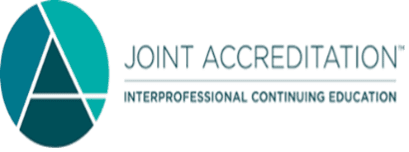
“Excellent conference, well presented, offered practical and
— Loma Linda workshop attendee, Jan. 2024
useful information for health care workers.”
Overview
Join fellow health care professionals for an immersive human trafficking learning experience that dives beyond the 101 of traditional workshops. Our leaders will begin with a brief overview of these crimes and their health connections. You’ll then learn about specific health impacts of trafficking, along with tools for identifying and assessing survivors including trauma-informed care principles, barriers to disclosure, screening tools and the provider’s role in response and referrals.
You’ll experience a range of interactive activities and apply your knowledge through exploring case studies and brainstorming policies and procedures that could be used in your own setting.
“I feel like I can do something.”
— Pasadena workshop attendee, Jan. 2024
Human Trafficking: A Social and Racial Justice Issue
Our workshop leaders aim to empower health professionals to understand this issue of social and racial justice. While human trafficking crimes ensnare people of all genders, cultures, races and backgrounds, they unduly impact people of color, LGBTQI youth and other marginalized groups.
Throughout the training, you’ll hear inclusive language and learn methods and processes that will enable you to understand and take into account victims’ well-being. You’ll also gain skills in assessing people across different backgrounds, inclusive of all skin types and pigments.
Who Should Attend
Doctors, nurses, nurse practitioners, social workers and health care administrators (reception, patient check-in and check-out), and other personnel who interact with patients. We also welcome community-based partners including nonprofit organizations, law enforcement personnel, colleges and universities, and anyone else who may benefit.
Program Details
Please view the following tabs for more details. HASC also offers private Essential Human Trafficking Training workshops, customized to your organization’s preference and number of participants. For more information about setting up a custom workshop or for any questions, please contact the HASC Education Department.
Following this course, you’ll be able to:
- Recognize the red flags of human trafficking in a clinical or community setting.
- Apply professional, ethical, trauma-informed and sensitive approaches when working with trafficking victims and survivors.
- Advocate for those who have been trafficked by helping them to get needed services and resources.
- Develop skills in identifying trafficking victims and survivors by knowing what to look for, what questions to ask and how to create a place of safety.
- Understand how health care professionals make decisions in human trafficking cases, and brainstorm ways to make these decisions.
Speakers
Samantha L. Calvin, PhD(c), MHI, MBA

An anti-trafficking advocate and leader in Arizona and the United States, Samantha has used education and training to debunk the myths around human trafficking. She is active in community-focused work and research to understand how the issue of human trafficking is evolving.
Over the past ten years with Arizona State University’s (ASU) Edson College of Nursing and Innovation, Samantha developed the Edson Human Trafficking Awareness Program, which she currently oversees. This program focuses on helping health care providers and community members to become more aware of what human trafficking looks like, ask better questions when working with potential victims and survivors, and know what resources to provide. Currently, Samantha is expanding this work to include a program for K-12 educators.
She has also served as a consultant for the U.S. Department of Justice. Samantha regularly speaks at ground rounds, conferences and panels throughout Arizona.
Tejal Patel, Esq., CPHRM

A licensed attorney and insurance broker with over 20 years of experience, Tejal specializes in crafting innovative solutions to complex health care risks and legal challenges in California, and advocating for those without voices, such as victims of human trafficking.
Over the past eight years, Tejal has served as associate risk management counsel for Cedars-Sinai Health System in Los Angeles. In this role, she has led the development and implementation of multidisciplinary human trafficking trainings for clinical providers and hospital support staff. She continues overseeing the trainings and customizes each to include focused discussion about who traffickers target and how, red flags often displayed by those being trafficked, and appropriate trauma-informed care response by providers.
Beyond her health care role, Tejal advocates for anti-trafficking initiatives through grassroots efforts and partnerships with pioneering organizations such as iEmpathize. She believes in the transformative power of education and the vital role of health care providers in addressing human trafficking.

2026 program fee will be announced in the coming weeks
Continuing education units offered:
- SHRM PDCs: Hospital Association of Southern California is recognized by SHRM to offer Professional Development Credits (PDCs) for SHRM-CP® or SHRM-SCP® recertification activities. This program is valid for 3.50 PDCs for the SHRM-CP® or SHRM-SCP®
- AMA PRA Category 1 Credits: 3 CME credit hours
- Nursing Continuing Professional Development (NCPD) Credits: 3 credit hours
- Social Work Approved Continuing Education (ACE): 3 credit hours
- Interprofessional Continuing Education Credits (IPCE): 3 credit hours
- HR Certification Institute Credit: Participants may earn up to 4 HRCI Qualified Education Hours toward initial certification
- ACHE Credit: Participants may earn up to 4 ACHE Qualified Education Hours per session toward initial certification or recertification of the Fellow of the American College of Healthcare Executives (FACHE) designation

As a Jointly Accredited Organization, Arizona State University is approved to offer social work continuing education by the Association of Social Work Board’s (ASWB) Approved Continuing Education (ACE) program. Organizations, not individual courses, are approved under this program. State and provincial regulatory boards have the final authority to determine whether an individual course may be accepted for continuing education credit. Arizona State University maintains responsibility for this course. Social workers completing this course will receive 3 credit hours of continuing education credits.
For more information, please contact the HASC Education Department.
Sherita Aquino
[email protected]
(213) 538-0767
Sharri Dixon
[email protected]
(213) 538-0739
